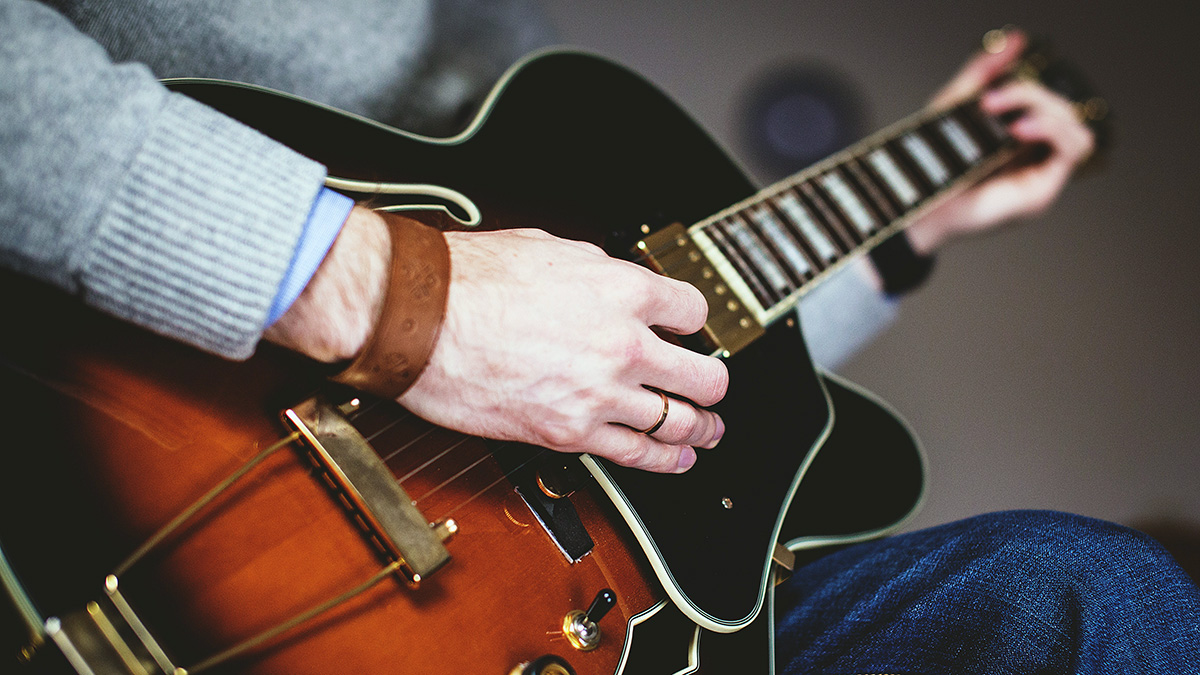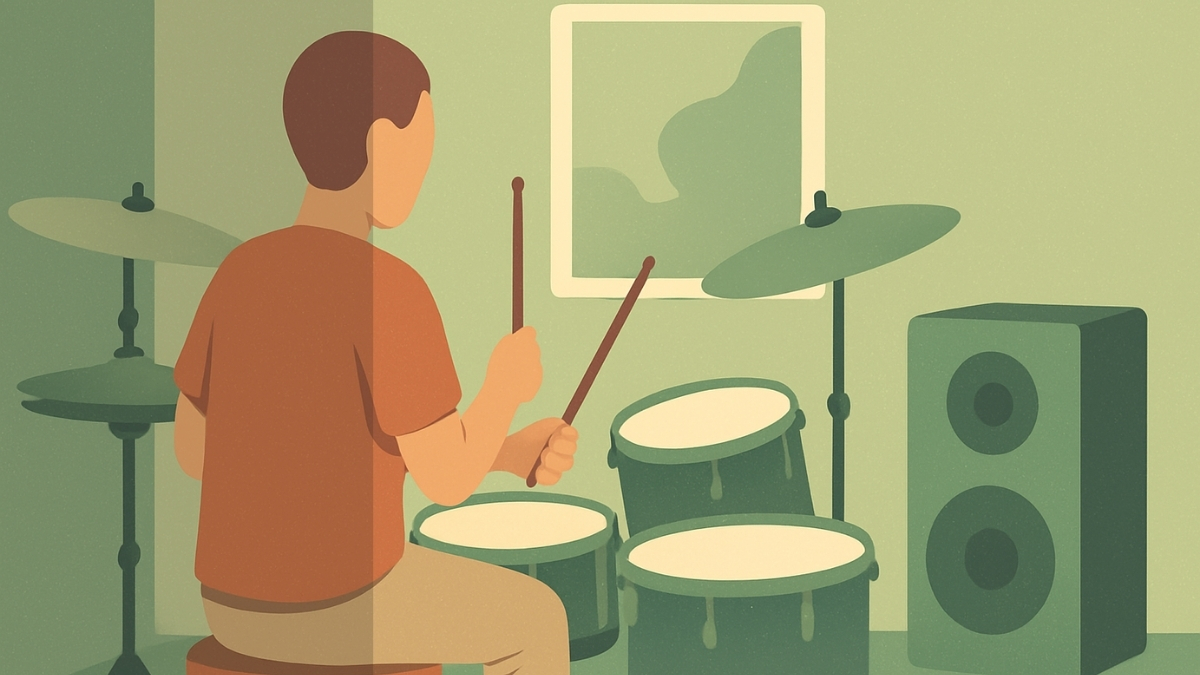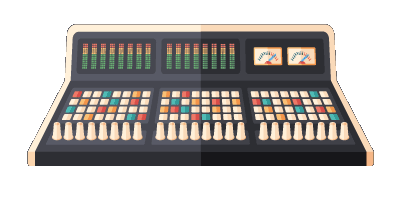Why You Need to Learn a Second Instrument Right Now

The pandemic is mostly behind us. It's a small wonder we haven't all graduated from Harvard Online and learned six languages yet! We've managed to binge right through Tiger King, Bridgerton and Royal Family gossip, but that time off to-do list of pandemic masterclasses and DIY start-up projects we made may be collecting space dust.
So here's the deal…
Fender Guitars posted its most impressive sales figures ever last year. Guess there will be a lot more guitar players popping up in the next year or so… (because there are never enough guitar players on the gig). The demand for music lessons and online resources is at an all-time high, inspired by lock-down and the world's collective 'learn to play' bucket lists.
While it's safe to assume that most pandemic pick me up guitarists are learning an instrument for the first time, those of us who are already part of the club have an even greater window of opportunity. Here is why you need to start learning a second instrument, today!
Rhythm & Melody
If your main instrument is melodic or harmonic (guitar, piano, violin, sax), it's especially helpful to learn a percussive instrument like the drums or even the bass guitar. This creates a deeper connection to and understanding of the rhythm section while playing your regular instrument.
On the other hand, if you're a drummer or bassist, learning a corded or melodic instrument such as guitar or piano can help to expand your knowledge of musical theory, harmony and songwriting. Learning a corded instrument is especially beneficial for musicians pursuing higher education, who need to expand their knowledge of harmony, chord structure and accompaniment.
'Speaking the language' of your bandmates and collaborators will only help you to communicate as a musician and a composer, and even help to improve your overall employability!
Timing is Everything
Timing is what separates good musicians from great musicians, and nothing works to improve your timing like taking up a new gadget. Learning a new instrument will force you to revisit fundamentals you may have neglected in years past. It also challenges you to learn new pieces and exercises that may incorporate phrasing that's unfamiliar to you. Not only does this improve your playing, but it also improves your ears too!
Before I branched out and learned to drum, I never understood what it meant to play 'ahead of' or 'behind' the beat. My goal was always to play in time, when I practiced to a metronome… I had no idea that you could manipulate the groove of a part or passage by playing slightly faster or slower. Once I internalized this concept on the drum kit, I was able to apply it to my guitar playing, adding a new layer of excitement to my improvisation, composition, and studio chops, as I now understood completely what producers and engineers were asking for in regards to timing, groove and feel.
Your Body Will Thank You
Branching out into new musical territory isn't just good for the mind (and the ears!), it's good for your physiology as well. Stress injuries are alarmingly commonplace amongst even the most learned musicians and technicians, with over 80% (yes you read that right, EIGHTY PERCENT) of musicians experiencing a stress type injury at some point throughout their careers.
These injuries range from tendonitis to carpal tunnel and frozen shoulder, and can severely impact a musicians ability to express themselves, earn a living and enjoy their craft.
Fortunately, the body craves variety, and many stress injuries result from repetitive motion… all the more reason to learn a new instrument that challenges and engages different parts of your body.
If you're a violinist, it may be beneficial to work on your voice, as it will give your hands, wrist and shoulders a break. Guitarists often struggle with carpal tunnel, and could benefit from learning an instrument that doesn't require similar repetitive actions, like the harmonica! Drummers could potentially give their wrists some time to recover by learning the piano or keyboard, as many classical techniques focus on a totally relaxed wrist, with movement coming from the fingers only.
Produce!
The more instruments you can play, the more instruments you can program. Having hands-on experience with drums or horns is going to take the work you do inside your DAW to the next level. It's easy to Google the range of a cello or tries to approximate the sound of a 70s P-Bass, but there's no substitute for experience.
Working on your keyboarding will also help to improve your MIDI capabilities and help to expedite your workflow when producing and writing music. In DeadMau5's online Masterclass™, the producer and DJ expresses frustration that he can't actually play the part he's mouse-clicking into his DAW, on the MIDI keyboard in front of him. Don't be like DeadMau5. Learn more instruments.
Walk Don't Run
One thing to be mindful of as you learn a second instrument is to avoid running before you can walk. It's hard not to jump ahead on your new instrument to match and recreate concepts, techniques and ideas you have already achieved proficiency in on your native instrument. Learning a new instrument is just like learning a new language… We often struggle with wishing to express ourselves just as eloquently in our new language as we are able to in our native language, and learning a new instrument is no different. Resist this urge at all costs!
If we try to rush our learning process, we may miss out on many of the key takeaways from learning a second instrument in the first place. The real meat and potatoes value of learning another instrument is in the fundamentals, not the bells and whistles. Sure, throwing down a sick odd time beat on the drums at a party is cool if you're normally a horn player or guitarist, but skipping the beginner stuff is like passing 'GO' without collecting $200 (in pandemic aid).
Fortunately, if we are patient, these strong fundamentals pay off down the line by creating a comprehensive understanding of structure, vocabulary and phrases, all things you'll need to master your new instrument and improve your musicianship. We hope this article was helpful in inspiring you to go learn a new instrument! Don't forget to keep your ears sharp in ToneGym, and use those hard-earned coins to unlock new instruments to ear train with, especially the new instruments you are learning.
The Title
Lastly, you will earn the title of 'multi-instrumentalist', which looks SO much better on your business card, IG bio and on the ToneGym Community forum.
You're still reading!? Go play!



Comment on this post on ToneGym Community